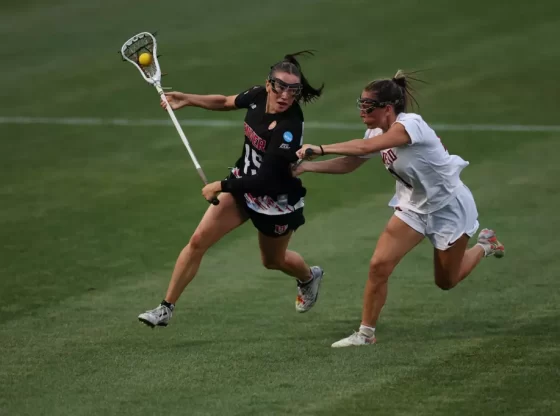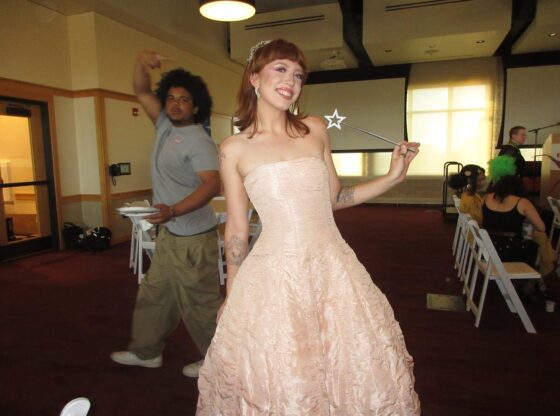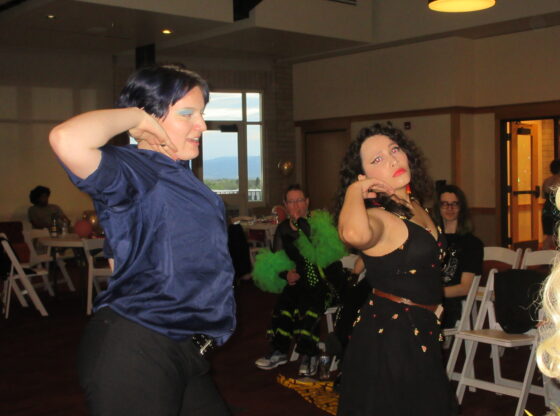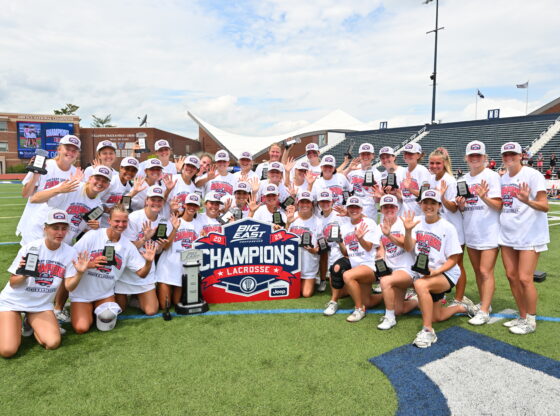When a blind student in a science class was unable to learn the different areas of the brain through photographs, Michele McCandless stepped in to help. She purchased a model of the brain and labeled it with Braille tape. Now, the student can feel and understand what terms are associated with specific areas.
“We pride ourselves on looking for creative solutions for students, faculty and staff, and being collaborative with the person with the disability to make sure it is what he or she needs,” said McCandless.
McCandless is the associate director of the Disability Services Program.
The DSP “works with all DU students who have documented disabilities and who request accommodations,” said Michele McCandless, associate director of the program. The program deals only with academic access for students.
Accommodations include extended time for test taking, providing sign language interpreters, room changes resulting from accessibility issues and many other adjustments. “Accommodations need to be appropriate and reasonable, not perfect,” said McCandless.
University Disability Services, the overarching program under which DSP operates, works with over 700 students, the “vast majority” of whom have learning disabilities or ADHD, said McCandless.
DSP helps students who request their aid. These students may include ones with disabilities, severe medical illnesses, or who require medical stop-outs from school. The program does not handle students with temporary injuries or illnesses as they are not considered a disability under the Americans with Disablities Act (ADA).
According to the ADA Web site, someone with a disability is defined as “a person who has a physical or mental impairment that substantially limits one or more major life activities, a person who has a history or record of such an impairment, or a person who is perceived by others as having such an impairment.”
Susan Lee, director of the Office of Diversity and Equal Opportunity, is responsible for facility access for students and employees on campus as well as ensuring that all ADA standards are met.
The recent snowfalls have created additional accessibility issues for many people on campus. Lee works with Facilities Management to ensure that routes taken by students that are part of the DSP are placed on the priority snow- removal list. These locations are cleaned first and more often.
Lee calls herself an “advocate for the university complying with the law fully.” She does this in a number of ways. When any construction or renovation occurs on campus, Lee ensures that the work is done to ADA standards, as stated by law.
Recent and ongoing construction on campus, such as Nagel Hall, a “positive” for disability access, and the parking garage on High Street, which has “plenty” of handicap parking, represent improvements in accessibility.
Barrier removal is another aspect of Lee’s job. If a door is too heavy for a student who uses a wheelchair, for example, Lee works to either make the door easier to open or get a handicap access door put in.
Many buildings on campus have been around for a long time, but McCandless says DSP does “quite well despite the fact we’re a very old campus bisected by Denver city streets.”
Students who use wheelchairs or have a mobility issue can work with the DSP for accommodation purposes.
McCandless reviews the students’ schedules to make certain that all classrooms are accessible: “Our philosophy is that we do not put a student in a building unless we’ve seen it.”
Michael Neil, a doctoral student at the Graduate School of International Studies and wheelchair-user, has a button on his wheel chair that is calibrated to open the doors at Ben M. Cherrington Hall. The button is a “really wonderful piece of gadgetry that DSP helped me with,” he said.
Neil finds it fairly easy to get around DU campus although he says that being in a wheelchair “would not normally be a problem but with the snow I’ve had to use Safe Ride much more.”
Safe Ride is one service on campus that DSP advocates to improve accessibility. Technological aids in handicap accessibility, such as automatic doors and wheelchair ramps, are part of the universal design concept. According to McCandless, the foundation of this concept is, “If it’s good for a person with a disability, it’s good for everyone.” Wheelchair ramps, for example, assist not only wheelchair users, but mothers pushing strollers.
The concept extends to more than just physical access. Class curriculum aimed at different learning styles also plays a role. Not everyone learns the same way, so professors who give lectures directed toward all three major learning styles – auditory, visual, and tactile – are helping all students, not just students with disabilities.
McCandless and Lee are just two people who say they are working to provide equal access for all people at DU.
“People with disabilities should be treated the same,” said McCandless, adding that the DSP is “one big collaborative piece” within which the “person with a disability is the key component.”
For more information visit www.du.edu/disability or call Michele McCandless at 303-871-3939.










